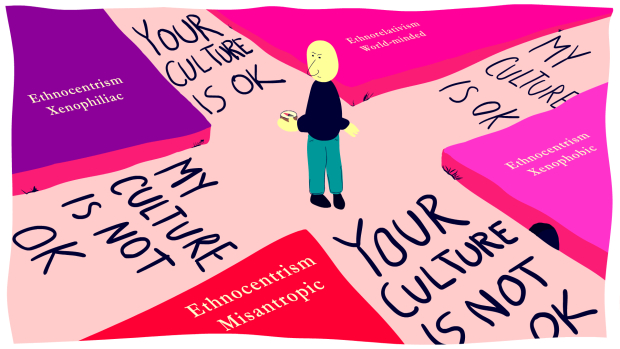My culture, your culture: How our values influence the way we work
Let’s look back at the scenarios in the first article of our ex-InCA series. How do these misunderstandings arise?
There are many factors at play, and yet there is a common thread – cultural preferences.
As humans, we all have different ways of communicating. Influenced by our culture, some of us learn to be explicit – others less so. Much also depends on the environment we work in – how formal do we have to be? Is there room for us to disagree with our colleagues?
The perception of who is in charge and how we relate to them also changes from one culture to another. What is our relationship to authority? What management styles are we more accustomed to – hierarchical, flat, a mix of both? Who makes the ultimate decisions? Is it a participatory process?
Even more aspects come into play when we think of how we approach problem-solving (deductive or inductive, holistic or specific…), the importance of relationships (including the role of teams – do we form on the basis of competence or how the different members get along with each other?), the perception of time, and so on.
Keep in mind, it is never an either-or dichotomy, and several factors can play out at the same time. Reflecting on them and realising they are at play makes for a helpful framework for coping with possible misunderstandings. Next time you head into a meeting with external partners for the first time, try to anticipate that cultural differences – however big or small – might influence how your meeting pans out.

Look back again at the scenarios in the first article – what cultural values may have influenced what happened in each of them? Is it an issue of communication, relationships, perception of time, way of thinking or behaving…? Share your ideas in the comments section below.
Now that we know how cultural differences can generate misunderstandings, tensions, inefficiencies, and even incidents, how do we cope?
Just as each of us is made up of several cultural layers, we tend to compare our cultures to those of people around us – we do it unconsciously.
Based on our experiences and assumptions we will hold our culture and “other” cultures in different ways, and this impacts our behaviour, attitude, and way of working. Our position may vary and shift depending on situations, context, and interactions.

The so-called “cultural life positions” below illustrate the different views and can bring insight into how cultural incidents are perceived and experienced. Think of it as four directions on a compass:
- My culture is OK, your culture is not OK: Here we view our culture as superior and tend to think that our value system is the universal one – we view others as inferior. As a result, we tend to blame others when things go wrong or when there are difficulties. This is an ethnocentric position with a monocultural frame of reference.
- My culture is not OK, your culture is OK: We can also be in a situation where we admire various aspects of other cultures and tend to negate our own. This is a Xenophilic view often linked to positive experiences of other cultures and negative experiences of one’s own. This perception often overlooks some aspects of reality.
- My culture is not OK, your culture is not OK: This relates to a position where we feel we do not fit in and none of our cultural references are meaningful – our cultural orientation is lost.
- My culture is OK, your culture is OK: Here we acknowledge and have the empathy to deal with cultural complexity. We accept differences and can even hold multiple frames of references. We realise that it’s all right to disagree with certain viewpoints, and we can respect those who hold viewpoints different from ours. There is a will to find ways to move forward. This approach is world-minded and ethnorelative.
The last position on this navigational compass is clearly the one we ought to be striving for in a multicultural environment, accepting that we may hold different viewpoints, not always agreeing with each other.
When you find yourself in cultural misunderstandings, which direction do you typically take? Share your experiences below.
